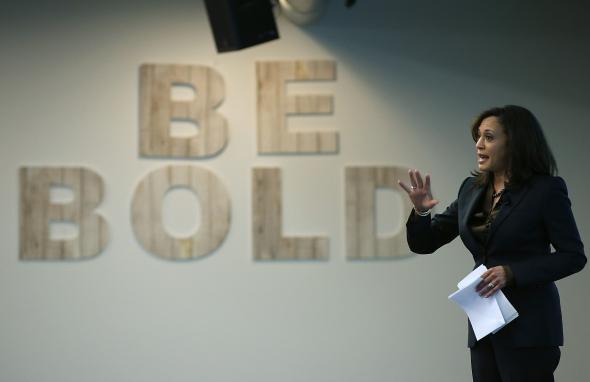Tuesday night was primary night in California—but when the votes were tallied in the open Senate contest the stakes in the general election dropped significantly. That’s because the two candidates who advanced to face off in November are both Democrats.
California Attorney General Kamala Harris won the largest share of the vote—more than 40 percent with some still outstanding—and the title of primary winner in the state’s unique nominating system, in which candidates from all parties compete in a single primary with the top two finishers earning spots in the general election. The second spot went to California Rep. Loretta Sanchez, who finished with roughly half of Harris’ support but still easily outpaced the best-performing Republican, Duf Sundheim, who was stuck in third place with single-digit support.
Harris and Sanchez will now go head-to-head in the general election. That means Democrats will no longer have to worry about protecting one of their 10 Senate seats that will be up for grabs in November. California is a blue state, and it would have taken a significant upset for Democrats to lose control of the seat left open by Sen. Barbara Boxer’s pending retirement—particularly in a presidential election year—but putting a notch in the win column five months early will still be a relief.
A Harris-Sanchez runoff is notable for another reason, too: It effectively ensures that a woman of color will be elected to the U.S. Senate for only the third time in the nation’s history. Harris, the daughter of immigrants from India and Jamaica, would become only the second black woman to serve in the Senate (Sen. Carol Moseley Braun, elected in Illinois in 1992, was the first). Sanchez, the daughter of Mexican immigrants, would become the first Latina to ever serve in the upper chamber.
Republicans, meanwhile, are left with one less pickup opportunity this year—and facing the reality that, as the Washington Post’s Dave Weigel noted, a state that elected Richard Nixon and Ronald Reagan to statewide office won’t have a GOP candidate on the ballot for Senate this fall.
Previously on the Slatest: Republicans Are Afraid Trump Will Cost Them the Senate. They Should Be.
